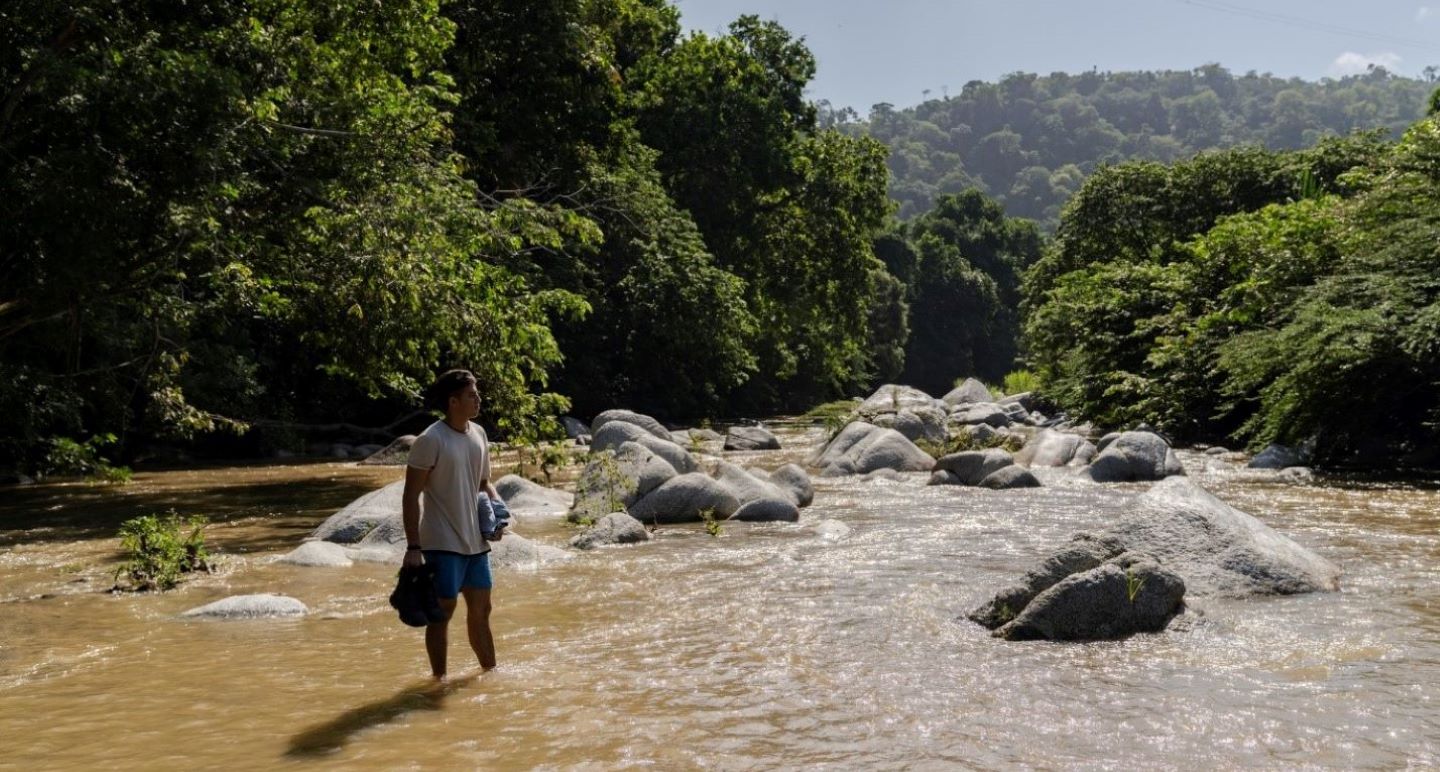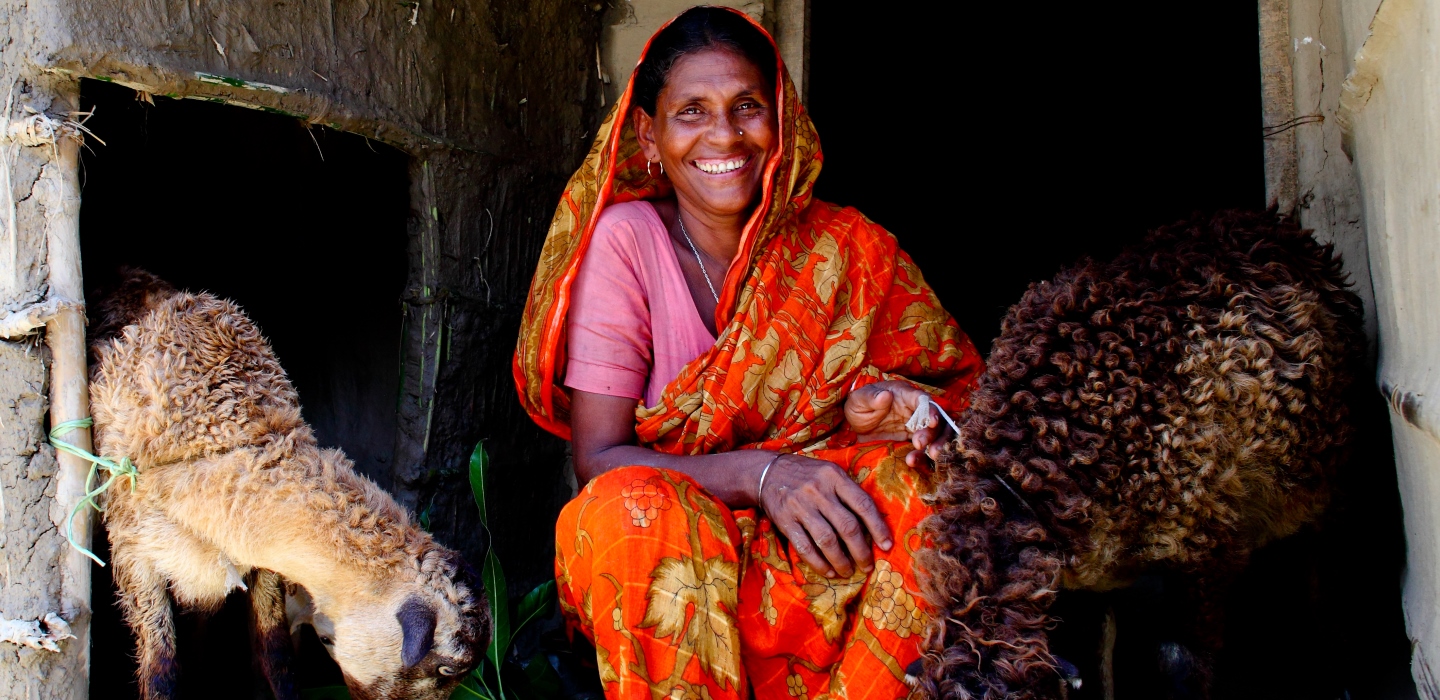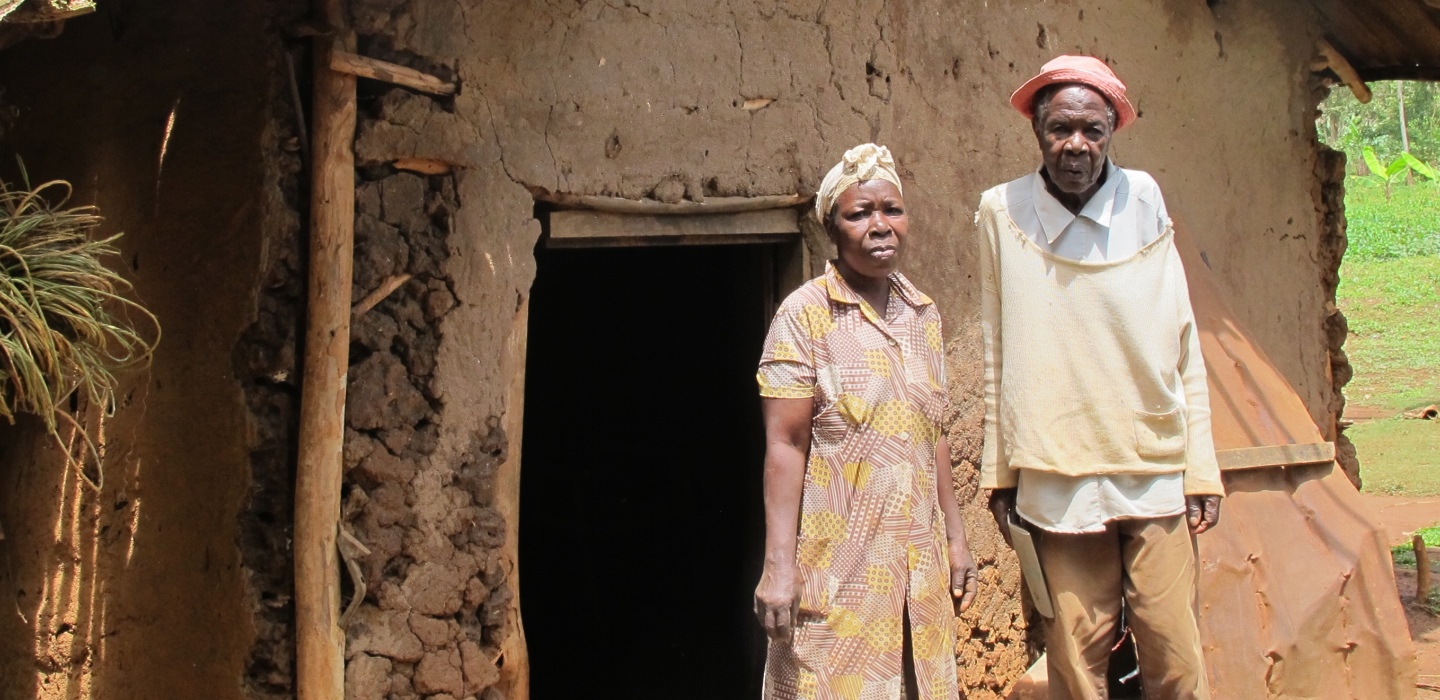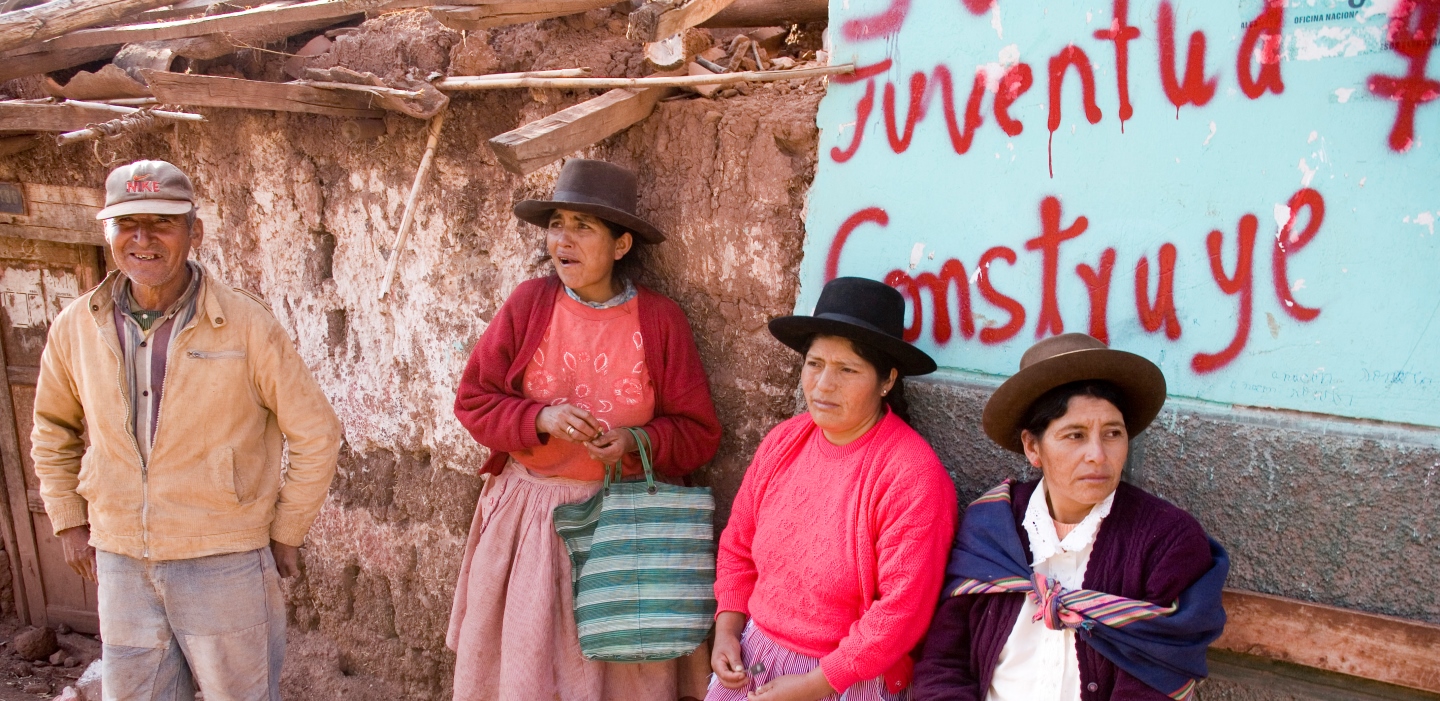Land
Land - banner
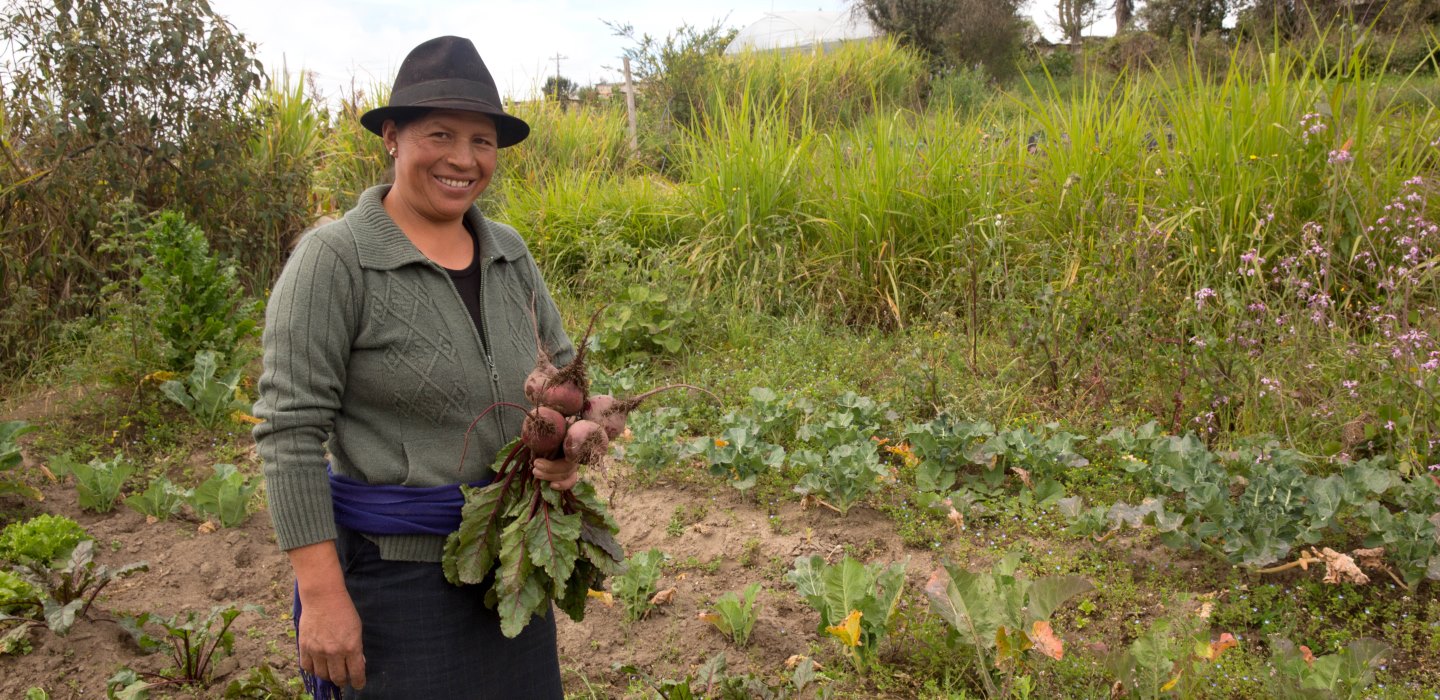
Land
Land
Competition for land has never been greater. The world faces rising population numbers, rapid urbanization, climate change, declining soil fertility and an increasing demand for food and fuel security. All of this puts pressure on land.
In many developing countries, competing land uses and increasing demand are sources of conflict and debate. Weak land governance and inefficient management of natural resources compound these issues.
Poor rural people – especially women, youth, indigenous peoples and other marginalized groups – typically have weak or unprotected tenure rights.
This means that they risk losing access and control over land, often the only asset they have to secure their livelihoods.
Land tenure security for broader stability
Access to land is key to eradicating poverty – and not only because it allows farmers to feed their families.
When smallholder farmers have secure land rights, they are more willing to invest in the land and can use it to access credit. Land ownership also gives them more incentives to improve farming techniques and manage their land sustainably. They are able to diversify their incomes and protect their family’s well-being against the threat of more powerful neighbours or private companies claiming stake to their land.
With secure land rights, rural women usually have a greater say in household investments and in community matters.
Land tenure security makes societies more stable, with less conflict and more opportunity.
Inclusive decision-making and a more secure future
IFAD-supported projects help people in rural areas gain legal rights to their land — a key factor in the fight against poverty. We promote the recording and registering of land rights, decentralized land administration and more secure rangeland rights.
We also encourage good land governance through participatory land-use planning and conflict resolution, as well as inclusive and responsible investment and multi-stakeholder dialogue.
Securing land rights can be complex, and is an issue that requires sustained international support. IFAD is therefore engaged in the global policy dialogue on land as part of the Global Donor Working Group and is a founding member of the International Land Coalition, which identifies access to both land and natural resources as a fundamental factor in IFAD’s efforts to reduce poverty, increase food security, improve nutrition and strengthen resilience in rural areas.
Collaborating with FAO, the Committee on World Food Security and others, IFAD contributed to the formulation and implementation of the Voluntary Guidelines on the Responsible Governance of Tenure (VGGTs).
We also worked together with the African Union Commission and its partners to develop the pan-African land policy guidelines. More recently, IFAD has collaborated with a range of partners on the inclusion of a land tenure security indicator within the United Nations Sustainable Development Goals (SDG) framework.
IFAD also leads the Global Environmental Fund (GEF) Integrated Approach for Food Security in Sub-Saharan Africa, which focuses on the natural resources that underpin food and nutrition security — land, water, soils, trees and genetic resources.
Spotlight
Spotlight
See how water and peace go hand in hand
Peace and water are inextricably intertwined. That’s why sustainable rural development can help reduce conflict in communities – and why water is often the crucial element that can make the difference.
Experts
Asset Publisher

Rikke Grand Olivera
Lead Global Technical Specialist, Land Tenure & Natural Resources Management
Stories and news
Stories and news
See how water and peace go hand in hand
Peace and water are inextricably intertwined. That’s why sustainable rural development can help reduce conflict in communities – and why water is often the crucial element that can make the difference.
Prosperity or the planet? Luckily, they're not mutually exclusive
All too often, value chain development harms the planet by emitting carbon and degrading environments. That’s why to build truly prosperous rural areas, we must make value chains not just strong, but sustainable.
The wonderful power of wetlands
Wetlands are closely linked with our wellbeing – they protect against erosion, improve water quality, and host a vast range of species. Let’s visit some of these precious ecosystems and meet the rural people protecting them.
With the right resources, rural women can change the world
When rural women access finance, the entire world flourishes. Find out how financially empowered women are leading the fight against climate change, achieving sustainable development and ensuring food security for their communities and the planet.
Land View more link
Related publications
Related publications
IFAD Research Series 92: Climate Change Mitigation in the East and Southern Africa Region: An Economic Case for the Agriculture, Forestry and Land Use Sector
This report is a guide to shape investments by IFAD and other international donors in climate change mitigation actions in the East and Southern Africa region.
Sustainable Agricultural Intensification Practices - East and Southern Africa
This note identifies SAI practices implemented in 17 East and Southern Africa countries and recommends best approaches to promoting SAI in ESA and beyond.
Supporting Extension Services to Scale Up Sustainable Land Management: The potential of WOCAT’s tools and methods
This publication reviews lessons from applying the World Overview of Conservation Approaches and Technologies (WOCAT) in Cambodia, Lao People’s Democratic Republic and Uganda.
Related documents
Related documents
Type: Policies and Strategies, Policy
